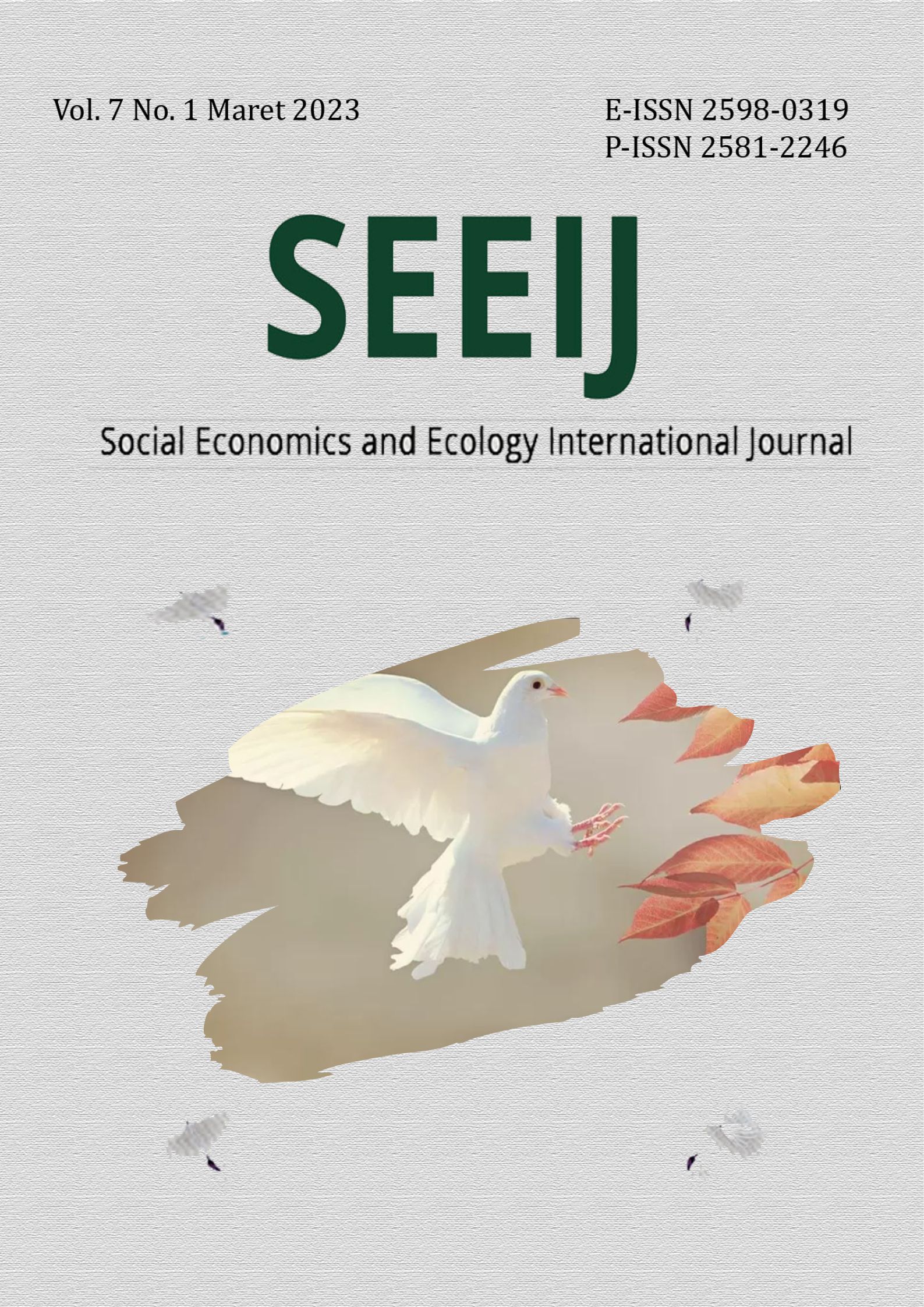Training on Digital Marketing and Redesign of Ecoenzyme Product Packaging Enhances the Productivity of ‘Sri Tanjung SMEs’
DOI:
https://doi.org/10.21512/seeij.v5i2.9247Keywords:
Digital Marketing, Redesign, Ecoenzym, Packaging, SMEsAbstract
Sri Tanjung is one of the Small & Medium-Sized Enterprises (SMEs) operating in a green economy in Sukosari Village, Kasembon District, Malang Regency. The SMEs make a variety of eco-enzyme-based soaps. This community service aims to address the production and marketing-related issues that Sri Tanjung SMEs deal with. Observation and training tailored to the requirements of Sri Tanjung SMEs constitute the method adopted. Among the conclusions reached are the necessity to enhance manufacturing capacity, which is still constrained by a shortage of human resources; the fact that sales of soap only satisfy local demands using traditional techniques; and the fact that human resources still lack marketing technology skills. Conclusions and suggestions that can be made include training on the usage of Google Business and Google Ads, as well as training on the production and marketing aspects of digital marketing through social media (marketing aspect).
References
Anam, C. 2020. “Ekonomi Kota Malang Di Era Covid-19, Begini Kondisinya.”
Antasari, Dewi Wungkus. 2019. “Implementasi Green Economy Terhadap.” Jurnal Ekonomi Pembangunan 5(2):28–36.
Ayu Multika Sari, Andy Fefta Wijaya, Abdul Wachid. 2014. “PENERAPAN KONSEP GREEN ECONOMYDALAM PENGEMBANGAN DESA WISATA SEBAGAI UPAYA MEWUJUDKAN PEMBANGUNAN BERWAWASAN LINGKUNGAN (Studi Pada Dusun Kungkuk, Desa Punten Kota Batu).” Administrasi Publik (JAP) Vol. 2(No. 4):Hal. 765-770.
Harahap, Rima Gusriana, Nurmawati, Anggoronadhi Dianiswara, and Destyariani Liana Putri. 2021. “Pelatihan Pembuatan Eco-Enzyme Sebagai Alternatif Desinfektan Alami Di Masa Pandemi Covid-19 Bagi Warga Km.15 Kelurahan Karang Joang.” Sinar Sang Surya (Jurnal Pusat Pengabdian Kepada Masyarakat) 5(1):67–73.
Kompas. 2020. “Pandemi Covid-19, Apa Saja Dampak Pada Sektor Ketanagakerjaan Indonesia?”
Megah, Suswanto Ismadi, Desi Surlitasari Dewi, and Eka Wilany. 2018. “Pemanfaatan Limbah Rumah Tangga Digunakan Untuk Obat Dan Kebersihan.” Minda Baharu 2(1):50. doi: 10.33373/jmb.v2i1.2275.
Mohammad Rifqi Junaidi, Muhammad Zaini Ramadhan, Muhammad Hasan, Bryen Yuzac Zein Baneka Ranti, Muhammad Wahyu Firmansyah, Silvia Umayasari, Anggi Sulistyo, Rochmathul Duwi Aprilia, and Fahrudin Hardiansyah. 2021. “Pembuatan Eco-Enzyme Sebagai Solusi Pengolahan Limbah Rumah.” Jurnal Pembelajaran Pemberdayaan Masyarakat (Jp2M) Vol. 2 No.(2):118–23.
Noviarita, Heni, Muhammad Kurniawan, and Gustika Nurmalia. 2022. “PENGELOLAAN DESA WISATA DENGAN KONSEP GREEN ECONOMY DALAM UPAYA MENINGKATKAN PENDAPATAN EKONOMI MASYARAKAT PADA MASA PANDEMI COVID-19 (Studi Pada Desa Wisata Di Provinsi Lampung Dan Jawa Barat).” 2(8):655–59.
PPDSMA. 2021. “Mengenal Lebih Dalam Langkah Aplikasi Ekonomi Hijau Di Indonesia.”
Rany, Alya P., Salsabila A. Farhani, Vidya R. Nurina, and Laila M. Pimada. 2020. “Tantangan Indonesia Dalam Mewujudkan Pertumbuhan Ekonomi Yang Kuat Dan Pembangunan Ekonomi Berkelanjutan Melalui Indonesia Green Growth Program Oleh Bappenas.” Jurnal Ilmu Ekonomi Dan Pembangunan 20(1):63–73.
Septiani, Ulfia, Rina Oktavia, Ahmad Dahlan, Kec Ciputat Tim, and Kota Tangerang Selatan. 2021. “Eco Enzyme : Pengolahan Sampah Rumah Tangga Menjadi Produk Serbaguna Di Yayasan Khazanah Kebajikan.” Jurnal Universitas Muhamadiyah Jakarta 02(1):1–7.
Susilawati, Susilawati, Reinpal Falefi, and Agus Purwoko. 2020. “Impact of COVID-19’s Pandemic on the Economy of Indonesia.” Budapest International Research and Critics Institute (BIRCI-Journal): Humanities and Social Sciences 3(2):1147–56. doi: 10.33258/birci.v3i2.954.
Downloads
Published
How to Cite
Issue
Section
License
Copyright (c) 2023 Faishal Hilmy Maulida, Yudhistya Ayu Kusuma, Mardhatillah Shanti

This work is licensed under a Creative Commons Attribution-NonCommercial 4.0 International License.
The Authors submitting a manuscript do so on the understanding that if accepted for publication, copyright of the article shall be assigned to SEEIJ Community Empowerment (CE) Bina Nusantara University as publisher of the journal.
Copyright encompasses exclusive rights to reproduce and deliver the article in all form and media, including reprints, photographs, microfilms and any other similar reproductions, as well as translations. The reproduction of any part of this journal, its storage in databases and its transmission by any form or media, such as electronic, electrostatic and mechanical copies, photocopies, recordings, magnetic media, etc., will be allowed only with a written permission from SEEIJ Community Empwerment (CE) Bina Nusantara University.
SEEIJ, the Editors and the reviewer make every effort to ensure that no wrong or misleading data, opinions or statements be published in the journal. In any way, the contents of the articles and advertisements published in the SEEIJ are sole and exclusive responsibility of their respective authors and advertisers.

This work is licensed under a Creative Commons Attribution-NonCommercial 4.0 International License.









